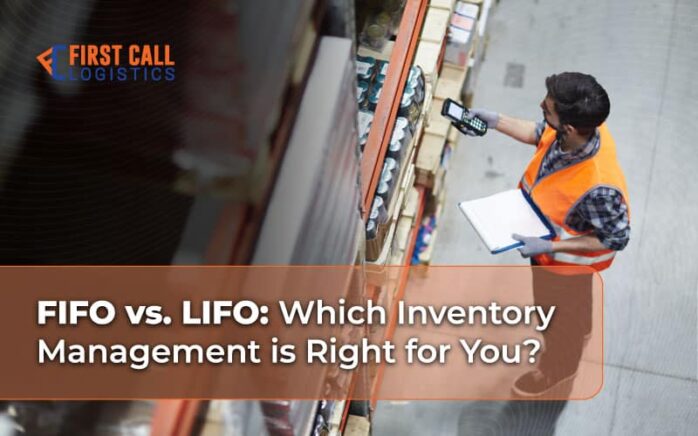FIFO vs. LIFO: Which Inventory Management is Right for You?

The way you manage inventory shapes your business. Net profits, taxes, shipping speeds and even customer satisfaction and brand loyalty are impacted at all times by how well you keep inventory stocked, picked and packaged.
First in, first out (FIFO) and last in, first out (LIFO) are the standard approaches to valuing and moving inventory. Understanding how each can impact supply chains will help you choose which method works best for your particular business.
FIFO: What it Is and How it Works
Many subscribe to the FIFO method on the principle that because the cost of producing goods is often variable, it makes sense to sell what you make first, first.
If your business deals with perishable goods or anything subject to obsolescence (think food products or designer fashions), FIFO is generally standard practice.
Think of it this way: If you sell groceries, you’ll want consumers to purchase food that has an earlier expiration date to avoid spoiled (and thus, wasted) products. Bread with the soonest expiration date is stocked and sold first, reducing the chances that the bread will be unsellable before it is purchased. Likewise, products subject to seasonal shifts in demands or trends are better off employing a FIFO system.
LIFO: How it Works
The rising cost of a product after its initial purchase can significantly impact how businesses view profits (and tax liability).
If a tech company purchases a plugin for $20 and sells its finished product for $60, the company’s net profit would be $40.
However, if the price of that plugin increases by $10 just a few months later, the company could calculate profits based on the most up-to-date price — thus reporting a profit of just $30. At the end of the year, the company will have less to report on their taxes, despite earning a $40 profit on the product.
Nonperishable goods (like petroleum, metals, or chemicals) are often managed using LIFO. Companies that offer services also often utilize LIFO due to the potential tax benefits.
It’s important to note that LIFO is banned by the International Financial Reporting Standards (IFRS) in many countries. The United States has not currently banned LIFO; however, companies must calculate their statements to FIFO in a footnote when they report their finances. In general, most companies are moving away from LIFO, as it introduces unwanted complexity in reporting profits and taxes at the end of the year.
FIFO vs. LIFO
Understanding the differences between FIFO and LIFO helps if you understand the main component they have in common: both are dependent on the product remaining the same, but the manufacturing cost changing.
The difference you need to keep in mind is that FIFO ignores increases or reductions in price for newer pieces, where FIFO depends on price fluctuations to determine profit.
Implementation of either FIFO or LIFO is rather simple — so long as you have a good inventory tracking system. Examine what type of goods or services you provide and whether or not your profit depends on the initial cost of the good versus what you sell it for. Longevity might also be a factor. As more and more countries are moving away from LIFO, you might want to consider FIFO from a long-term growth perspective.
How Inventory Valuation Impacts Your Business
The differences between FIFO and LIFO can mean the difference of thousands of dollars in tax savings every year. Gross profit will be larger with FIFO than it will with LIFO, since the initial cost of goods is lower. If your goods are perishable, you also run the risk of having thousands of dollars of inventory on your hands that cannot be sold once it has expired or is otherwise obsolete.
Changing your business’ existing supply chain processes can be a daunting task, but one that you can tackle with careful research and guidance. Talk to an expert at First Call Logistics today to learn more about how we move inventory to better support your business.
Streamline Delivery with Flexible Storage Solutions
Speedy delivery is crucial to any growing business. First Call’s Warehousing & Distribution Services can help establish resilient supply chains, deliver products on time and achieve long-term business goals.
More Resources on Warehousing and Distributions Solutions:
- Article: The Basics of 3PL Warehousing Services
- Article: Optimize Your Supply Chain with Decentralized Warehousing
- Article: A Guide to Warehouse Spaces
- Article: 20 Essential Supply Chain KPIs for Your Business to Track
- Article: 20 Warehouse Metrics that Matter Most
- Article: Understanding Cross-Docking Services